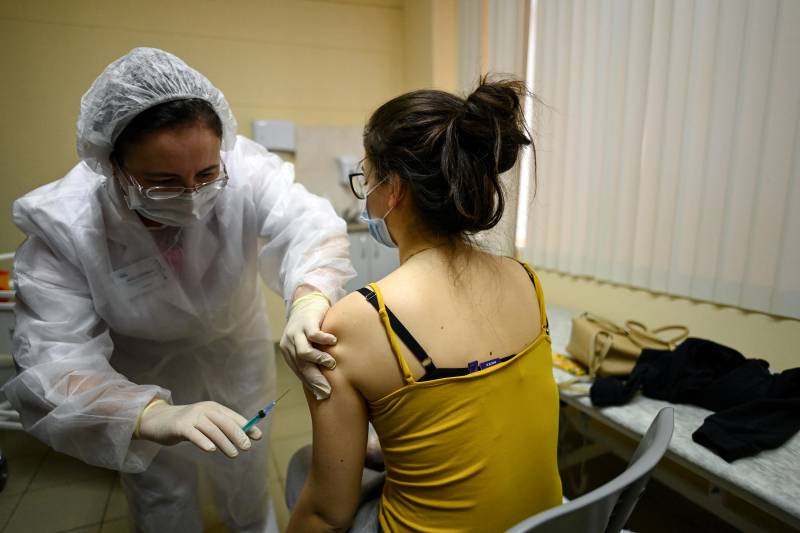Russian cosmonauts to receive Sputnik virus jab

Stay tuned with 24 News HD Android App

The Russian space agency said on Wednesday it planned to offer the Sputnik coronavirus vaccine to cosmonauts but insisted that the vaccination would be done on a voluntary basis.
Last week Russia launched its mass vaccination programme using Sputnik V, which has been named after a Soviet-era satellite. Developers say it is 95 percent effective based on interim trial results.
Vaccination centres opened their doors in Moscow, initially offering the vaccine to people in risk groups, including medics and teachers.
While some Russian cosmonauts initially said they did not plan to get vaccinated, a Roscosmos spokesman told AFP on Wednesday that members of the country's space programme will be inoculated -- "on a voluntary basis only."
"Members of the cosmonaut corps and employees of the Cosmonaut Training Centre will be among the first to get vaccinated," Roscosmos head Dmitry Rogozin said on Tuesday, in a statement released by the Russian Direct Investment Fund that has funded the development of the vaccine.
Sputnik V "will play an important role in ensuring the biological safety of the Russian space programme," Health Minister Mikhail Murashko added in the same statement.
Despite the start of Russia's vaccination campaign, Sputnik V is yet to complete its third and final phase of trials involving some 40,000 volunteers.
The vaccination of the next crew to travel to the International Space Station (ISS) "has not yet been decided" however, Roscosmos said, adding that the decision will be made by the Russian Federal Medical-Biological Agency.
Cosmonauts Oleg Novitsky, Pyotr Dubrov and Sergei Korsakov are due to depart to the ISS from the Baikonur spaceport in Kazakhstan in April, 2021.
In September, Russian cosmonauts currently on the ISS -- Sergei Ryzhikov and Sergei Kud-Sverchkov -- said that they did not intend to be vaccinated against Covid-19 because it was too early to get a vaccine touted by President Vladimir Putin.
"As soon as the vaccine is tried and tested and proves its reliability then a decision will be taken to recommend that cosmonauts get vaccinated," said fellow cosmonaut, Kud-Sverchkov at the time.
